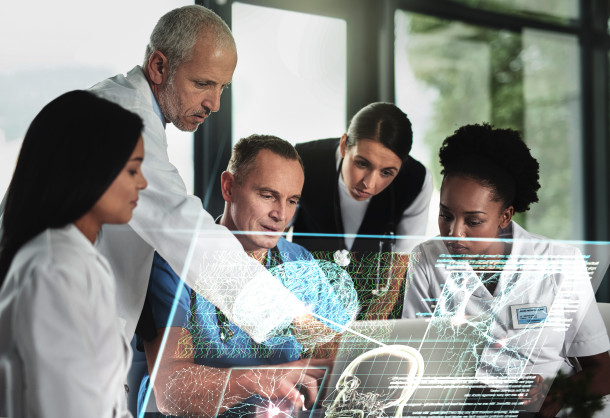UNESCO to lead global dialogue on the ethics of neurotechnology
The United Nations Educational, Scientific and Cultural Organisation (UNESCO) has welcomed the numerous advances made in the domain of neurotechnology and says that these should lead to many health benefits for the people. However, it has also cautioned against unregulated growth in the domain and has called for an international dialogue to set some boundaries and rules for research and development in this field.
In this context, the Member States of the Executive Board of UNESCO have approved the proposal of the Director General to hold a global dialogue to develop an ethical framework for the growing and largely unregulated Neurotechnology sector, which may threaten human rights and fundamental freedoms. First international conference will be held at UNESCO Headquarters on July 13.
‘‘Neurotechnology could help solve many health issues, but it could also access and manipulate people’s brains, and produce information about our identities, and our emotions. It could threaten our rights to human dignity, freedom of thought and privacy. There is an urgent need to establish a common ethical framework at the international level, as UNESCO has done for artificial intelligence,” says UNESCO Director-General Audrey Azoulay.
UNESCO’s international conference, taking place on July 13, will start exploring the immense potential of neurotechnology to solve neurological problems and mental disorders, while identifying the actions needed to address the threats it poses to human rights and fundamental freedoms. The dialogue will involve senior officials, policymakers, civil society organisations, academics and representatives of the private sector from all regions of the world.
Lay the foundations for a global ethical framework
The dialogue will also be informed by a report by UNESCO’s International Bioethics Committee (IBC) on the Ethical Issues of Neurotechnology, and a UNESCO study proposing first time evidence on the neurotechnology landscape, innovations, key actors worldwide and major trends.
The ultimate goal of the dialogue is to advance a better understanding of the ethical issues related to the governance of neurotechnology, informing the development of the ethical framework to be approved by 193-member States of UNESCO, similar to the way in which UNESCO established the global ethical frameworks on the human genome (1997), human genetic data (2003) and artificial intelligence (2021).
UNESCO’s global standard on the Ethics of Artificial Intelligence has been particularly effective and timely, given the latest developments related to Generative AI, the pervasiveness of AI technologies and the risks they pose to people, democracies, and jobs. The convergence of neural data and artificial intelligence poses particular challenges, as already recognised in UNESCO’s AI standard.
Neurotech could reduce the burden of disease
Neurotechnology covers any kind of device or procedure which is designed to access, monitor, investigate, assess, manipulate or emulate the structure and function of neural systems. Neurotechnological devices range from “wearables”, to non-invasive brain computer interfaces such as robotic limbs, to brain implants currently under development with the goal of treating disabilities such as paralysis.
UNESCO says that one in eight people worldwide live with a mental or neurological disorder, triggering care-related costs that account for up to a third of total health expenses in developed countries. These burdens are growing in low- and middle-income countries too. Globally these expenses are expected to grow – the number of people aged over 60 is projected to double by 2050 to 2.1 billion as per the World Health Organisation (WHO) in 2022. Neurotechnology has the vast potential to reduce the number of deaths and disabilities caused by neurological disorders, such as epilepsy, Alzheimer’s, Parkinson’s and stroke, says UNESCO.
But it also threatens human rights
The statement by UNESCO says that without ethical guardrails, these technologies can pose serious risks, as brain information can be accessed and manipulated, threatening fundamental rights and fundamental freedoms, which are central to the notion of human identity, freedom of thought, privacy, and memory. In a report published in 2021, UNESCO’s IBC has documented these risks and proposes concrete actions to address them.
Neural data, which capture the individual’s reactions and basic emotions, is in high demand in consumer markets. “Unlike the data gathered on us by social media platforms, most neural data is generated unconsciously, therefore we cannot give our consent for its use. If sensitive data is extracted, and then falls into the wrong hands, the individual may suffer harmful consequences,” says UNESCO.
Brain-Computer-Interfaces (BCIs) implanted at a time during which a child or teenager is still undergoing neurodevelopment may disrupt the ‘normal’ maturation of the brain. It may be able to transform young minds, shaping their future identity with long-lasting, perhaps permanent, effects, it adds.
Memory modification techniques (MMT) may enable scientists to alter the content of a memory, reconstructing past events. For now, MMT relies on the use of drugs, but in the future it may be possible to insert chips into the brain. While this could be beneficial in the case of traumatised people, such practices can also distort an individual’s sense of personal identity.
UNESCO says that currently 50 pc of neurotech companies are in the US, and 35 pc in Europe and the UK. Because neurotechnology could usher in a new generation of ‘super-humans’, this would further widen the education, skills, wealth and opportunities’ gap within and between countries, giving those with the most advanced technology an unfair advantage, warns UNESCO.










